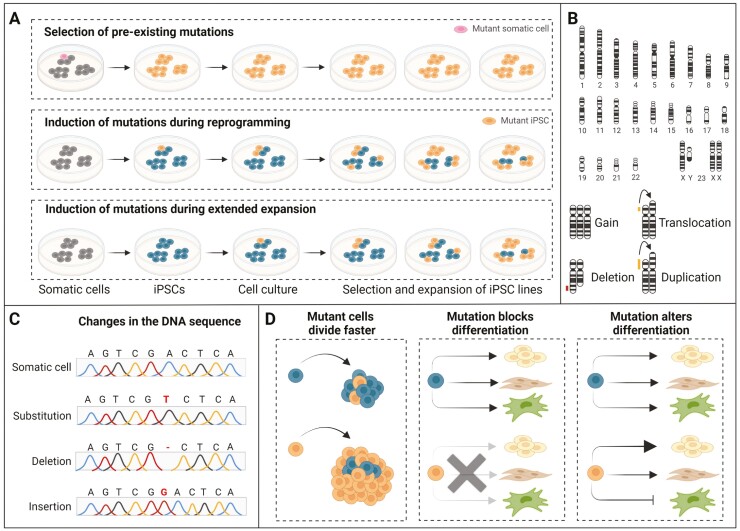Figure 2.
Sources and consequences of genomic instability in iPSCs. (A) Genetic alterations in iPSCs mainly arise via 3 routes: (i) Mutations are already present in the parental somatic cells from which iPSCs are derived and are subsequent cultured and expanded (upper panel), (ii) mutations can be induced during the process of reprogramming (middle panel), and (iii) mutations can be induced during extended passaging and prolonged culturing (lower panel). (B) Chromosomal rearrangements commonly observed in iPSCs, including gain of whole chromosomes, translocation of a chromosomal part from one to another chromosome, deletion of a chromosomal part, and duplications of a chromosomal part. (C) Changes in the DNA sequence commonly observed in iPSCs, including single nucleotide variation, ie, substitution of a single nucleotide at a specific position in the genome by another single nucleotide, and loss (deletion) or gain (insertion) of a single nucleotide. (D) Cell autonomous and cell interaction consequences of iPSC mutant variants, including growth advantage of the mutant variant as a result of faster cell cycle (left panel), block of differentiation by the mutant variant (middle panel), and alteration of differentiation patterns by the mutant variant (right panel).

